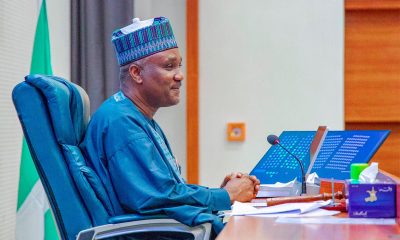Business
‘More expensive than subsidy?’ — Is FG’s N5,000 transport grant dead on arrival?
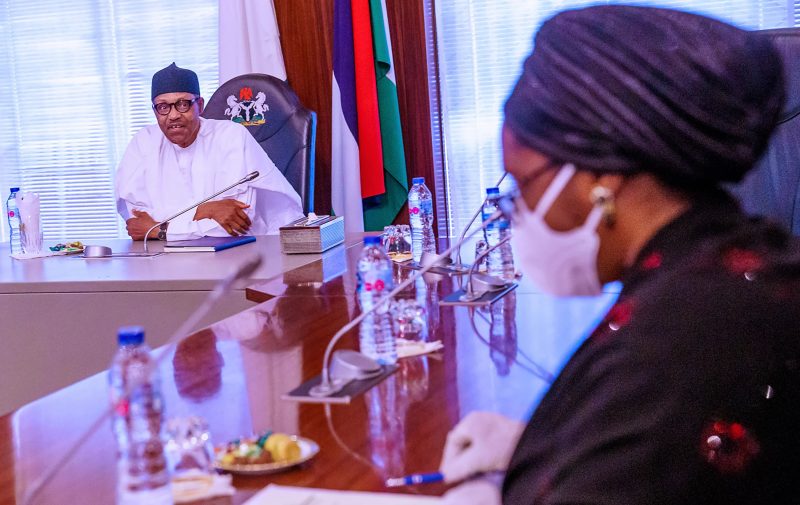
Zainab Ahmed, minister of finance, budget, and national planning, said on Tuesday that the federal government would remove fuel subsidy by 2022 and replace it with a N5,000 grant for the poorest Nigerians. According to her, about tens of millions Nigerians would benefit from the transport grant.
Following the revelation, Nigerians online and offline have weighed in on the policy, raising quite a number of reservations about the policy, which is billed to take off sometime between February to June 2022.
While some say the policy is inevitable, following the fiscal condition of the Nigerian states, others differ, emphasising that Nigeria is an oil-producing country and should not have to pay so much for petrol.
TheCable on Wednesday reported that Nigeria had the third-lowest petrol pump price in Africa, after Angola and Algeria. This position strengthens the argument for keeping oil subsidies — if other oil-producing states are doing it, Nigeria can keep subsidies too.
On the flip side, some Nigerians believe the removal of subsidies is long overdue. This school of thought claims that Nigeria is at least 10 years late to the party. They see subsidies as unsustainable, inefficient, and responsible for the lack of competition in the oil sector.
READ ALSO:
- Religious Leaders in the North appeal to Davido for help
- Alleged N11.8b scandal: Ayu vows to probe past PDP administrations
- Tinubu visited me to seek support for presidential ambition – Yakasai
However, a large chunk of both schools of thought does not entirely believe in the idea of giving N5,000 transport grants to the poorest Nigerians. Some say the grant will be more expensive than the existing fuel subsidy and would have an even worse impact on state finances.
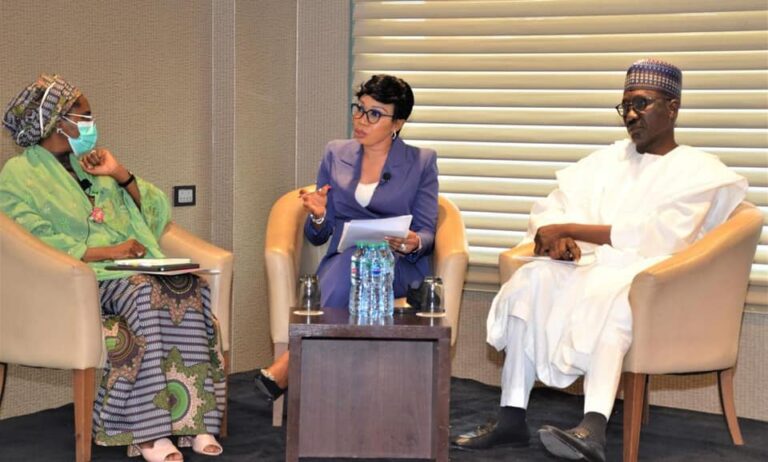
Zainab Ahmed taking questions at NDU launch event
TheCable has reviewed all we know about this policy to draw informed conclusions on the subsidy removal and replacement plan.
You may have seen claims online suggesting that N5,000 for 40 million Nigerians monthly, would amount to N2.4 trillion, which is more than the existing subsidy payments of about N1.8 trillion per year. Mathematically, this is correct. But according to what we know about the policy, this is not exactly the case.
Speaking at the launch of the Nigeria Development Update (NDU) hosted by the World Bank, the minister of finance, said the number of beneficiaries would vary between 20 million and 40 million.
During her opening speech, she said: “Ahead of the target date of mid-2022 for the complete elimination of fuel subsidies, we are working with our partners on measures to cushion potential negative impact of the removal of the subsidies on the most vulnerable at the bottom 40% of the population.
“One of such measures would be to institute a monthly transport subsidy in the form of cash transfer of N5,000 to between 30 – 40 million deserving Nigerians.”
For 30 million Nigerians, the cost of maintaining this grant per year will be N1.8 trillion, which is also as bad as the subsidy payment itself. Going by what the minister initially said, the cost of the grants is worse. This drives the argument for keeping subsidies.
However, the minister also said during the panel discussion that the grant may not get to all 40 million Nigerians, suggesting that the final numbers will be dependent on available resources. This means a lot less than N1 trillion may eventually be spent on delivering the policy.
READ ALSO:
- KPOFIRE: Woman leaves her three children in a boat, returns to meet them all burnt
- There is no basis begging Buhari to release Sunday Igboho – Afenifere
- Special forces eliminate bandits terrorizing Kaduna-Abuja road
TIME: FEBRUARY OR JUNE 2022?
Another challenge with the project is the timeline; questions abound on when exactly this project would kick-off. According to the Petroleum Industry Act, subsidies should be removed by February 2022. But according to the 2022 budget, subsidies will be paid till June, 2022.
Two contradicting pieces of legislation? Not exactly. When the PIB was signed by President Muhammadu Buhari, the president set up an implementation committee to execute PIA within the space of one year.
The committee, in line with the ministry of finance, budget and national planning, made room for subsidies till June 2022, but the removal could be as early as February to save the government some subsidy funds.
Will December, January, February be enough time to convince Nigerians on subsidy removal? Time will tell.
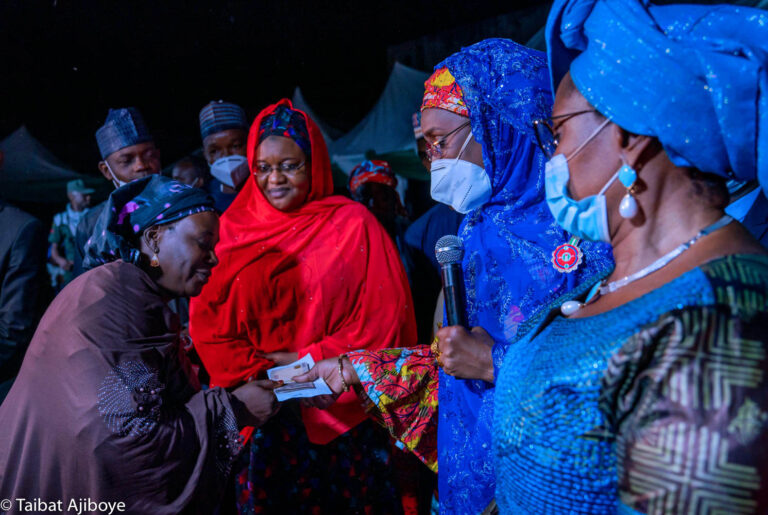
The beneficiaries would be identified as they were with other SIPs under the Buhari government, but payments will not be made physically like this
HOW WOULD THE 40M NIGERIANS BE SELECTED?
Yes, this is a recurrent question. But according to the minister, the selection process will build on the existing conditional cash transfer register used by the office of the vice-president in administering payments to poor and vulnerable Nigerians in the past.
The minister said the government will be working with state governments and non-governmental organisation (NGO) to ensure that the people who get the grant are the ones who actually get the funds.
READ ALSO:
- Kidnappers of Ondo N-Power teachers, principals, demand N35m
- Proscription of Bandits: FG has succumbed to blackmail – Gumi
- Diezani loses bid to recover $40m jewellery seized by Nigerian govt
DEAD ON ARRIVAL?
The World Bank recommended that Nigeria “implement a large-scale (covering 25% to 50% of the population) and time-bound targeted cash-transfer program to mitigate impacts of high inflation and the PMS subsidy removal.”
It also asked the government to “redirect savings from PMS subsidy to finance primary health, basic education, and rural connectivity projects” with the country.
The bank estimates that subsidy savings could be as high as N3 trillion per year. If that is the reality, then Nigeria can go ahead with the cash transfers, and still have some money to finance primary health, basic education, and rural connectivity projects.
However, going by 2019 figures, subsidy savings will be less than N2 trillion, while N5,000 to 40 million Nigerians will amount to N2.4 trillion. At that rate, there will be no savings for other projects recommended by the bank.
Dead on arrival? A lot will depend on the final implementation plans.
TheCable
Business
Oil prices surge over supply disruption
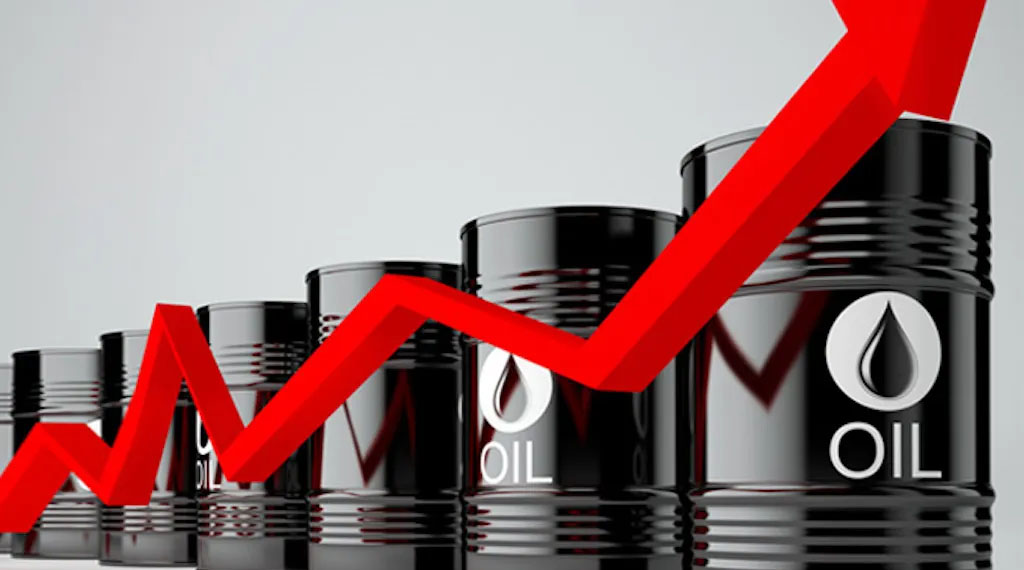
Oil prices surge over supply disruption
Oil prices reversed early declines yesterday, induced by concerns of tighter Russian and Iranian supply in the face of escalating Western sanctions.
Brent crude futures advanced 60 cents, or 0.79 per cent.
It sold for $76.90 a barrel while U.S. West Texas Intermediate (WTI) crude was up 50 cents, or 0.68 per cent. It sold for $74.06.
The Federal Government’s oil price benchmark in the 2025 budget estimates is $75 per barrel.
It seems market participants have started to price in some small supply disruption risks on Iranian crude exports to China, said UBS analyst Giovanni Staunovo.
Concern over sanctions tightening supply has translated into increased demand for Middle Eastern oil, reflected in a rise in Saudi Arabia’s February oil prices to Asia, the first such increase in three months.
READ ALSO:
- 46 kidnapped in Zamfara as gunmen attack Gana town
- Six soldiers killed, 34 terrorists eliminated in Borno troops, ISWAP clash
- ICPC slams El-Rufai’s ex-aide with money laundering charges
In China, Shandong Port Group on Monday issued a notice banning United States-sanctioned oil vessels from its network of ports, three traders said, potentially restricting blacklisted vessels from major energy terminals on China’s east coast. Shandong Port Group oversees large ports on China’s east coast, including Qingdao, Rizhao and Yantai, which are major terminals for importing sanctioned oil.
Meanwhile, cold weather in the U.S. and Europe has boosted heating oil demand, though oil price gains were capped by global economic data. Euro zone inflation accelerated in December, an unwelcome but expected blip that is unlikely to derail further interest rate cuts from the European Central Bank.
“Higher inflation in Germany raised suggestions that the ECB may not be able to cut rates as fast as hoped across the eurozone,” said Panmure Liberum analyst Ashley Kelty.
Technical indicators for oil futures are now in overbought territory and sellers are keen to step in again to take advantage of the strength, tempering additional price advances, said Harry Tchilinguirian, Head of Research at Onyx Capital Group.
Market participants are awaiting more data this week, including the U.S. December non-farm payrolls report on Friday, for clues on U.S. interest rate policy and the oil demand outlook.
Oil prices surge over supply disruption
Railway
Kano-Kaduna railway project gets $254.76m China bank loan approval
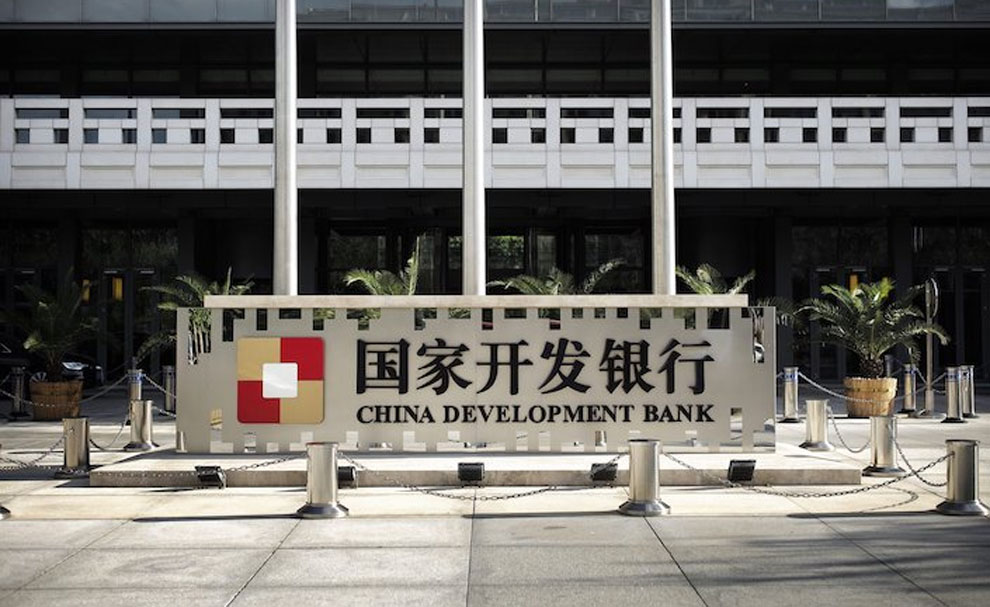
Kano-Kaduna railway project gets $254.76m China bank loan approval
The China Development Bank (CDB) has approved a loan of $254.76 million (€245 million) for the Kano-Kaduna railway project in Nigeria.
According to information on the bank’s website, the funding is expected to provide crucial financial support for the ongoing development of the railway, ensuring the project proceeds without delays.
The Kano-Kaduna railway is a standard-gauge line spanning 203 kilometres, designed to connect Kano, a major commercial hub in northern Nigeria, to the nation’s capital, Abuja.
Once completed, the railway will offer residents a safe, efficient, and convenient transportation alternative, significantly enhancing regional connectivity.
READ ALSO:
- Tinubu cabals, most dangerous in Nigeria’s history, says ex-minister
- Fubara has missed opportunity to settle with Wike – Rivers APC chairman
- Naira exchanges for N1,650/$ in parallel market
Beyond improved mobility, the railway project is expected to stimulate economic activity along its route.
It is also designed to promote the growth of related industries and generate numerous job opportunities for Nigerians during both the construction and operational phases.
The project has been highlighted as a key initiative under the Third Belt and Road Forum for International Cooperation.
It is being executed by the China Civil Engineering Construction Corporation (CCECC), with financing provided by the CDB.
According to the bank, construction is progressing smoothly.
The CDB emphasised its commitment to continued collaboration with the Nigerian government to ensure the timely disbursement of funds and effective management of subsequent phases of the project.
The bank stated, “Going forward, it will closely coordinate with Nigerian partners to ensure the smooth disbursement of subsequent loans and effective post-loan management.”
Kano-Kaduna railway project gets $254.76m China bank loan approval
Business
Naira exchanges for N1,650/$ in parallel market

Naira exchanges for N1,650/$ in parallel market
The Naira yesterday appreciated to N1,650 per dollar in the parallel market from N1,665 per dollar on Monday.
But the Naira depreciated to N1,538 per dollar in the official foreign exchange market.
Data published by the Central Bank of Nigeria, CBN, showed that the exchange rate for Nigerian Foreign Exchange Market (NFEM) rose to N1538 per dollar from N1,534.56 per dollar on Monday, indicating N3.44 depreciation for the naira.
READ ALSO:
- Don’t ignore Makinde’s warning on insecurity, Gani Adams tells S-West govs
- UAE golden visa offer, new opportunities for investors, entrepreneurs, students
- 7 things to know about Eric Chelle, new Super Eagles coach
Consequently, the margin between the parallel market and NFEM rate narrowed to N112 per dollar from N130.44 per dollar on Monday.
Naira exchanges for N1,650/$ in parallel market
-
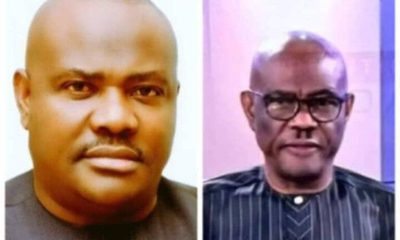
 metro2 days ago
metro2 days agoUpdated: Nigerians worry over Wike’s look after poisoning alarm
-

 Education2 days ago
Education2 days agoUNILORIN introduces courier service for collection of certificates
-

 Education2 days ago
Education2 days agoWAEC announces resit exams for candidates from Jan/Feb 2025
-

 News1 day ago
News1 day agoReactions as Mahama calls Tinubu ‘president of Ghana’ during inaugural speech
-
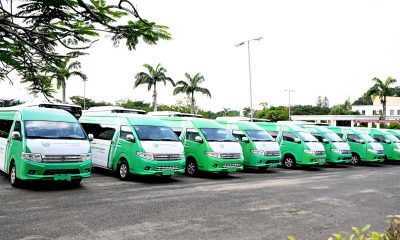
 metro2 days ago
metro2 days agoDistribution of CNG buses tears NANS leaders apart
-

 metro3 days ago
metro3 days agoNDLEA arrests 61-year-old female Lagos socialite, drug kingpin
-
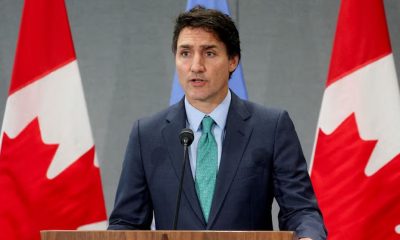
 International2 days ago
International2 days agoCanada’s Prime Minister, Trudeau, resigns
-

 Education1 day ago
Education1 day agoPoly graduates protest proposed exclusion from NYSC



